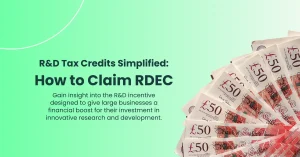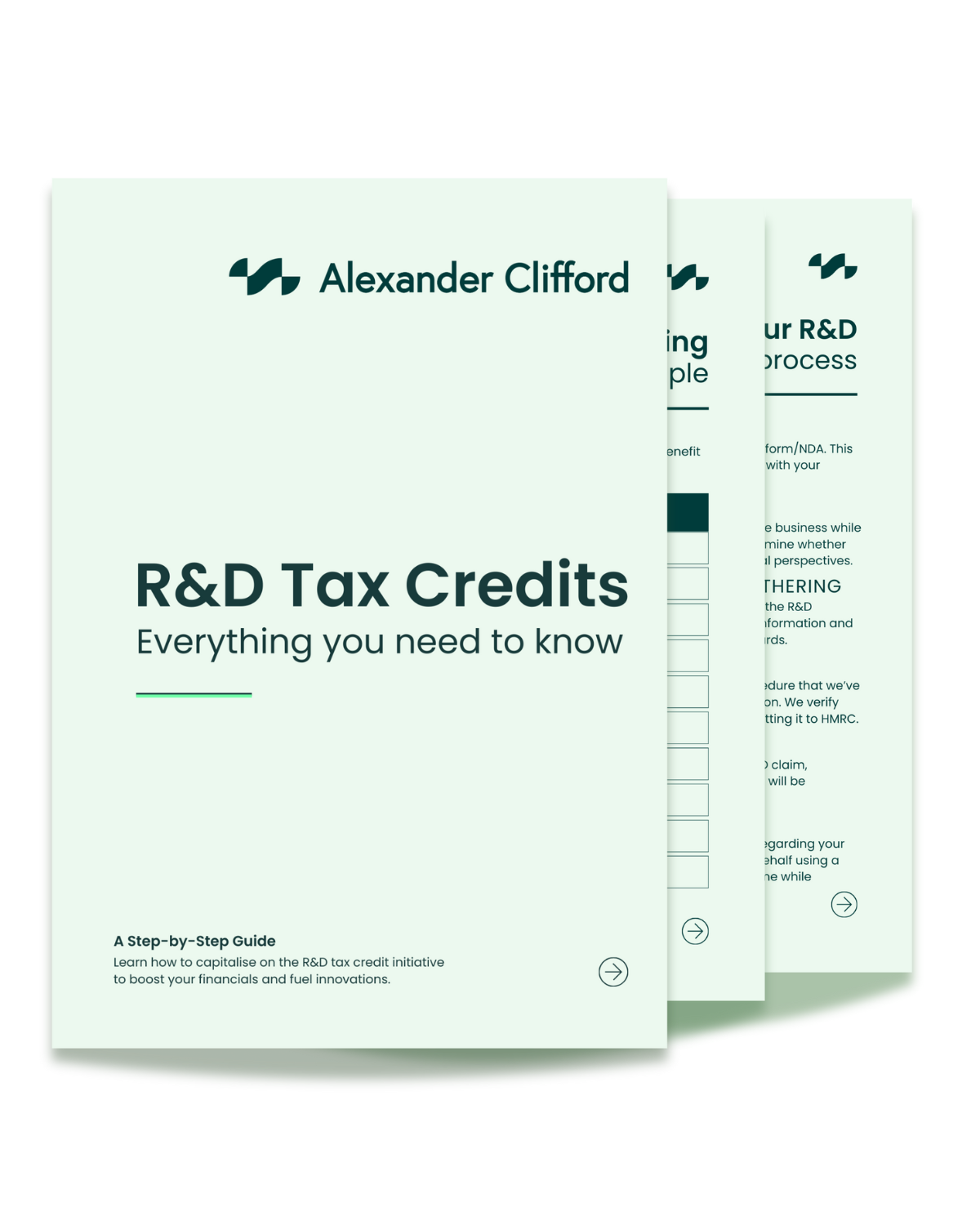R&D Tax Relief Eligibility Explained 2025

After 25 years of the UK R&D tax relief, HMRC are making major changes to the way you claim. But updated policies trigger new eligibility criteria. Today we’re highlighting the 2025 R&D tax credit eligibility, including the impact of the merged scheme and ERIS, along with qualifying R&D costs and eligible expenditure.
Eligibility is one of the most important aspects of an R&D claim. Get it wrong, and it could lead to penalties. And finding a straightforward explanation of the R&D tax credit eligibility can be tough – until now.
To simplify the claims process, we’re sharing all the need to know info, so that you can understand whether your project qualifies for the relief.
Introduction to UK R&D Tax Credits
R&D tax credits are an incentive formed by the British government to support innovative research and development. The idea behind it is to encourage businesses to invest in the advancement of science and technology, thus strengthening the economy.
Eligibility Criteria for R&D Tax Credits
The eligibility criteria for R&D tax credit relief are pretty straightforward, and extend to innovations in all industries, as long as the advancement is not in the arts, humanities or social sciences (including economics). In order to successfully qualify for R&D tax relief, businesses must meet the following criteria:
- Be a UK registered business that’s subject to corporation tax
- Oversee a research and development project that aims to resolve scientific or technological uncertainties
- Ensure the uncertainty could not be easily solved by a competent professional in the field
- Ensure that the research and development is related to the businesses trade
If your business and your project meet these requirements, you likely qualify for the relief.
R&D Scheme Eligibility
Your claim must be filed under a specific scheme. Each of these schemes have their own eligibility criteria that businesses must align with. They are as follows:
SME Scheme
To qualify under the SME scheme, your business must:
- Have less than 500 staff
- Have a turnover under €100million or a balance sheet less than €86million
- Have an accounting period beginning before April 1st 2024
RDEC
To qualify under RDEC, your business must:
- Have 500+ staff
- Have a turnover over €100million
- Have an accounting period beginning before April 1st 2024
The Merged Scheme
To qualify under the merged scheme, your business must:
- Be a profit making SME or a large business
- Have accounting period that begins on or after April 1st 2024
Enhanced R&D Intensive Support (ERIS)
To qualify under ERIS, your business must:
- Be a loss making SME
- Spend at least 30% of total spending on R&D (including spending by connected companies)
- Have accounting period that begins on or after April 1st 2024
Qualifying Activities for R&D Claims
While your research and development project may qualify, only activities that contribute to overcoming the technical uncertainty are eligible for the relief. This means activities such as clerical work cannot be included in your R&D claim.
To determine whether your activities are eligible, it’s important to assess whether the activities involve the following:
- Developing or significantly improving a product, process, service or software
- Overcoming technical uncertainties where the solution is not obvious
- Using systematic methods to help achieve innovative solutions
- Advancing existing knowledge in science or technology beyond routine engineering
Qualifying Costs for R&D Tax Relief
After verifying your qualifying activities, you can begin identifying your qualifying costs. It’s important to remember that you can only claim costs directly related to your qualifying activities. Eligible R&D costs include:
- Staffing costs (including salaries, wages, employer NIC, and pension contributions for employees directly involved in R&D)
- Externally provided worker (EPW) costs
- Subcontractor costs
- Materials and consumables (including supplies and some utilities)
- Software costs (software used in research or development processes)
- Prototypes (excluding prototypes intended for sale)
- Clinical trial volunteer costs
- Data licence and cloud computing service costs
- Mathematic costs (such as hired PHD level mathematicians)
To align with HMRC policy, accuracy is important when identifying qualifying costs and activities.
How Alexander Clifford Can Help With Your Claim
At Alexander Clifford, we make R&D tax credit claims simple, stress free, and highly rewarding. Our team of specialists has successfully secured over 2,400 claims, helping businesses like yours maximise their tax relief while staying fully compliant with HMRC.
We take care of the entire process, from identifying qualifying activities to compiling a comprehensive claim that stands up to scrutiny. With our expertise, you can be confident that your business is getting the maximum benefit it deserves.
Let’s get started. Fill in the contact form below or book a call with one of our specialists today.
Book a quick call







